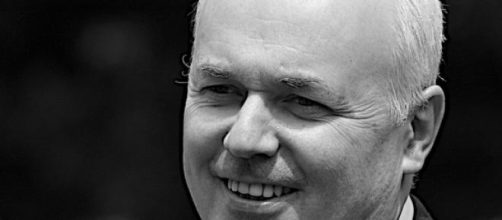Government figures for child poverty have been released today, showing that 4.1 million children in the UK are living in absolute poverty after housing costs. Secretary of State for Work and Pensions Iain Duncan Smith spoke about government statistics, which show that 2.3 million children currently living in relative poverty. Discussing the figures he said: "These statistics show that the proportion of individuals with low income is now at the lowest level since the mid-1980s."
The focus of the government's interpretation of the statistics was on the relative child poverty numbers.
This is something many people do not understand, as Chair of the Work and Pensions Select Committee, Labour MP Frank Field, said: "Politicians might understand these measurements but the electorate certainly doesn't."
Poverty is worked out as a percentage of the average income in a country. Relative poverty is worked out against the average income of that year, while absolute poverty is worked out against a set figure which never changes. The statistics are also worked out before housing costs and after housing costs, which gives a better indication of the living standards of low income households.
The statistics released today show that housing costs plunge a lot more children into poverty.
While 2.3 million children are in relative poverty before housing costs, a further 1.2 million are in relative poverty after housing costs are taken into account. In the United Kingdom the definition of relative child poverty is a child living in a household with an income of less than 60% of the national average income.
The story looks worse when the figures for absolute poverty are included. Absolute child poverty is a child living in a household with an income of less than 60% of the national average income in 2010/2011, adjusted for inflation. The statistics for absolute poverty show that 2.6 million children are living in absolute poverty before housing costs. But a staggering 4.1 million children are in absolute poverty when housing costs are taken into account.
This indicates that housing costs are taking up more and more of our income, as this shows that 1.5 million households would not be in poverty if it wasn't for their housing costs. These figures are a matter of concern for many people looking at the upcoming £12 million of cuts over the next five years.
Javed Khan, chief executive of Bernado's explained: "Poverty is blighting the life chances of our children, making them more likely to fall sick, do less well at school and be unemployed in the future. Government plans to cut struggling families' incomes further by changing tax credits is deeply concerning."

